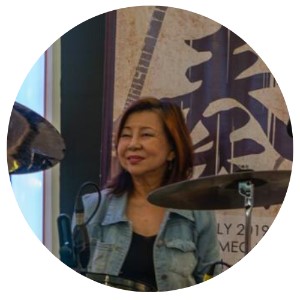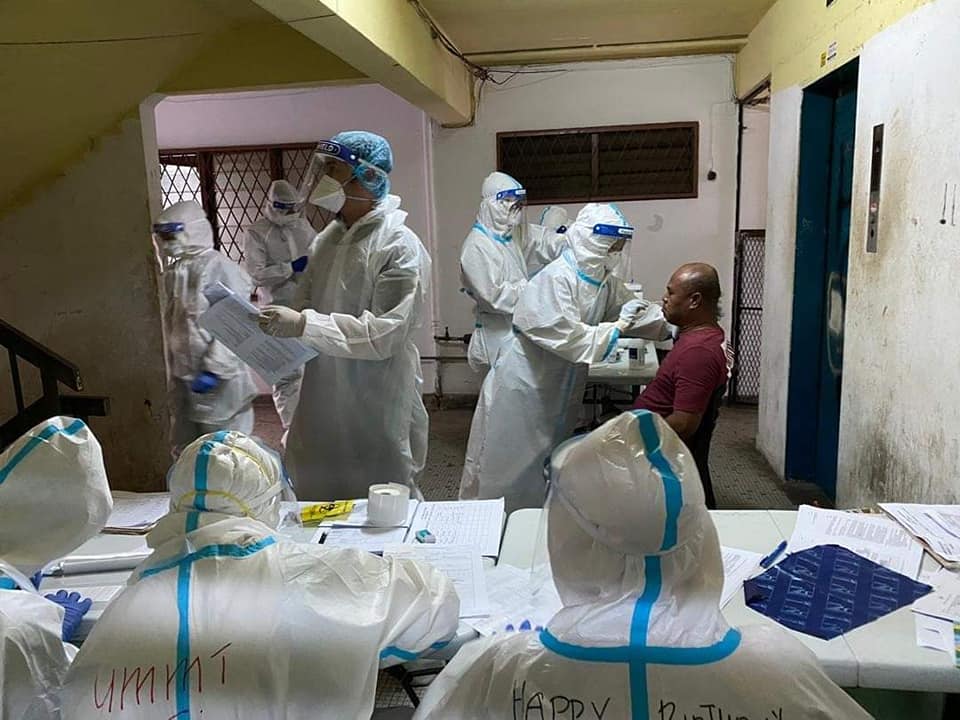Worldwide, 601,000 have lost their lives prematurely (18 July 2020) out of 14 million confirmed cases of Covid-19. This includes thousands of unnamed front-liners e.g. health care workers (HCW) and police killed by “friendly fire” in the call of duty, personal heroism and sacrifice.
In countries across the Asia-Pacific region, at least 171 HCW have died and 12,454 infected (11 June).
Health Care Workers — Deaths/ Infected By Country
China: 34 deaths/ 3,387 infected (February); Philippines: 35/ 2,314 (majority nurses and physicians); India: 34 / 1,028; Afghanistan 13/ 346.
In Bangladesh, 1,172 doctors have tested positive and 35 have died (14 June). Pakistan Medical Association released a list of 37 doctors and three paramedics who have died out of 3,635 positive HCW.
As of 23 June, Ikatan Dokter Indonesia (Indonesian Medical Association) reported that nationally, 38 doctors and 30 nurses have died from Covid-19.
According to a British Medical Journal report (1 June), Spain holds the sad record of being the country with the highest number of Covid-19 cases among health care professionals. Approximately 50,000 health care professionals have been infected, representing 20 percent of all recorded cases and 70 have died.
UK reported 272 HCW deaths, including doctors, nurses and midwives, nurse assistants, paramedics and ambulance staff and hospital porters. Black, Asian and Minority Ethnic are over-represented in Covid-related HCW deaths. The Office for National Statistics (ONS) recorded 268 social care workers deaths from suspected or confirmed Covid-19 in England and Wales between March 9 and May 25.
HCW Infections In Malaysia
On 19 June, it was reported that of 28,512 HCW screened, 363 were confirmed positive. I am unable to find more up-to-date statistics on the internet.
On 23 April, the Director General of Health said that 70 per cent of the then 325 positive cases among HCW were linked to attending wedding receptions and some who had returned from overseas. The infected HCW included 77 medical officers, 66 nurses, 34 graduated medical officers, 23 medical experts and 21 assistant medical officers. The remaining 104 were involved in other service schemes.
There have been three Malaysian HCW deaths. Only one, a 32 year-old nurse, was Covid-work related (23 April). She had a history of high blood pressure and close contact with a positive patient.
The first HCW fatality was a 48-year-old Malaysian pathologist with no comorbidities, who died 22 March following travel to Turkey, not related to Covid patient care.
Fifty-two health care workers in Sarawak tested positive for Covid-19 so far, said the State Disaster Management Committee chairman on 27 April. Twenty-one were close contacts to positive cases from a church conference. (I could not find more recent statistics on HCW, but there have been more cases since).
There is currently no systematic global tracking of Covid-19 deaths among health and essential workers.
Amnesty International (AI) revealed that more than 3,000 health workers are known to have died from Covid-19 in 79 countries worldwide. This figure is likely to be a significant underestimate. In this AI report, “health workers” refers to everyone involved in the delivery of health and social care in any capacity, including but not limited to doctors, nurses, social care workers, cleaners, ambulance drivers and facilities staff.
The countries with the highest numbers of health worker deaths thus far, include the USA (507), Russia (545), UK (540 including 262 social care workers), Brazil (351), Mexico (248), Italy (188), Egypt (111), Iran (91), Ecuador (82) and Spain (63).
Serious Shortages of Personal Protective Equipment (PPE)
Health workers in nearly all the 63 countries surveyed reported serious shortages. A doctor in Mexico City told Amnesty that doctors were spending about 12 per cent of their monthly salaries buying their own PPE.
A survey by the British Medical Association in May, found that 48 per cent of UK doctors had sourced their own PPE or relied on a donation when none was available.
HCW Faced Threats, Dismissal, Arrest or Detention For Voicing Concerns
In Egypt, nine HCW were arbitrarily detained between March and June on vague and overly broad charges of “spreading false news” and “terrorism”. They had expressed safety concerns or criticized the government’s handling of the pandemic.
Another Egyptian doctor told Amnesty that doctors who spoke out were subjected to threats, interrogation by the National Security Agency, administrative questions and penalties. He said: “Many doctors prefer to pay for their own PPE to avoid this exhausting back and forth. The authorities are forcing doctors to choose between death and jail.”
In the USA, a certified nursing assistant was fired after posting a video on Facebook where she read out a petition calling for more PPE. She said that the staff at the nursing home in Illinois where she worked were not informed that they were working with Covid-19 patients and had only found out through the media. The nursing home had reported 34 infections and 15 Covid-19 related deaths as of May 29.
In Russia, two doctors, Yulia V and Tatyana R, faced retaliation after complaining about the lack of PPE. Yulia has been charged under Russia’s fake news laws and faces a fine of up to RUB100,000 (USD 1,443). Tatyana is facing disciplinary proceedings that may result in her dismissal.
Unsafe Working Conditions And Unfairly Or Not Paid
In South Sudan, doctors on the government’s payroll have not received their salaries since February and do not receive welfare packages or medical cover.
In Guatemala, at least 46 facilities staff were not paid for the two-and-a-half months they spent working at a Covid-19 hospital.
No Additional Benefits Or Compensation When Infected
In some countries, there are no additional benefits for health and essential workers in the context of the Covid-19 pandemic, and in other countries benefits exclude certain categories of workers.
Amnesty is calling on states to consider Covid-19 an occupational illness and ensure that HCW have access to compensation and other support in case they contract the infection. They must also be included in priority groups for Covid-19 testing.
Stigma and Violence Because Of Their Jobs
A nurse in Mexico was reportedly drenched with chlorine while walking on the street. In the Philippines, attackers poured bleach in the face of a hospital utility worker.
On 26 May, in Malaysia, medical professional associations and 250 Malaysian paediatricians were up in arms against what was seen as “discriminatory policies and practices” against the children of medical front-liners in childcare centres.
The 22 May Standard Operating Procedure (SOP) for Child Care Centres set by the Women, Family and Community Development Ministry had stated in Appendix 12, Section 2.1.2 “that front-liners’ children are at high risk of getting the (Covid-19) infection from their parents. The safest place for these children is to be cared for at home. However, if front-liners’ children are to be sent to the childcare centres, they must be segregated from other children,” the guidelines read.
In the Women, Family and Community Development Ministry’s defence, the Minister said “in the country’s efforts to break the chain of Covid-19 infection, every SOP issued was based on the advice of experts, especially from MOH (Ministry of Health). We appreciate HCW sacrifices and there is no discrimination. Social Welfare Department employees are also part of the front-liners.”
The Director General of Health agreed that the SOP was aimed at preventing the risk of Covid-19 transmission among children at nurseries since front-liners were among those in the high-risk group for Covid-19.
The Academy Of Medicine, Malaysia pointed out (28 May 2020) that child care for HCW should be prioritised, as reflected in the United States Centers for Disease Control and Prevention (CDC) guidelines. The CDC states that if childcare centres cannot fulfil necessary physical distancing measures for all children, childcare centres should “consider serving only the children of healthcare workers and first responders”. The Academy of Medicine also suggested that frontline health care workers should be given a child care allowance as hiring a private caregiver can be costly.
In Pakistan, Amnesty International has recorded several instances of violence against HCW since April. Hospitals have been vandalised, doctors attacked. One was shot by a member of the Counter Terrorism Force.
When hospitals were forced to turn away critical patients due to the shortage of beds, ventilators and other life-saving equipment, people don’t believe them. Politicians’ claim that hospitals have the necessary resources puts HCW, who have to turn patients away, in danger.
Recommendations by Amnesty International
Amnesty International calls on all states affected by Covid-19 to:-
- Carry out independent public audit into their preparedness for and responses to the pandemic, with a view to better protecting human rights and lives in the event of a future mass disease outbreak.
- Review whether the rights of HCW, including the right to just and favourable conditions of work, and the right to freedom of expression – were adequately protected.
- Ensure adequate compensation for all health and essential workers who have contracted Covid-19 as a result of work-related activities.
- Investigate cases where workers have faced reprisals for raising health and safety concerns
- Provide effective remedy to those who have been unjustly treated including by reinstating workers who have lost their jobs for speaking out.
Personally, I feel that governments owe it to the fallen Covid-19 war-hero frontliners to ensure their orphans will not lose their future and dreams.
There should be a trust or foundation to support them educationally, socially and emotionally till adulthood. Spouses, dependents and parents will need support to tide over their loss and grief too.
In the long term, health care workers may need support for PTSD (post-traumatic stress disorder), like the veterans of any conventional war.

A fusion opinion from a Sarawakian public health specialist, paediatrician, ex-associate professor, disaster relief and medical volunteer, passionate about helping people learn.
- This is the personal opinion of the writer or publication and does not necessarily represent the views of CodeBlue.








